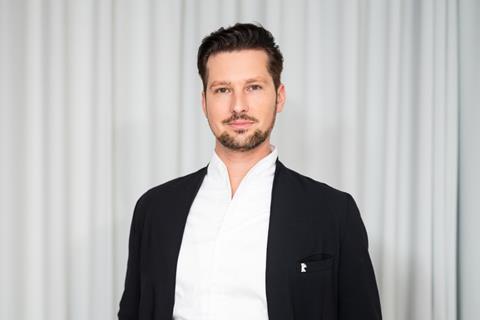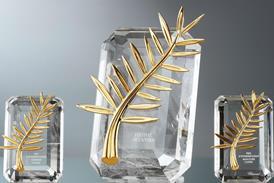
Dennis Ruh took over as director of the European Film Market (EFM) back in September 2020 and, two‑and-a-half years later, finally gets to preside over a physical edition after the pandemic pushed the previous two iterations online.
“We are all excited to be back,” says Ruh, a former German Films executive and co-director of Oldenburg International Film Festival. “It’s been a very strange experience for me and my team to have the market online for two years in a row.”
Those returning after the long hiatus should notice several changes. Whereas previously, some market screenings and the Berlinale Series Market took place four kilometres away at Zoo Palast — alongside screenings at CineStar Cubix in Alexanderplatz, some 3.5 kilometres away — this year everything happens around Potsdamer Platz.
The EFM Industry Sessions (taking place under the headline ‘Shift Happens’, to acknowledge the industry upheaval) will now take place near the Gropius Bau, in the Documentation Centre for Displacement, Expulsion, Reconciliation. A new EFM meeting place, Café Connect, can also be found here. The nearby CinemaxX will generally be used for market screenings.
The increasingly important Berlinale Series Market will also be integrated more closely into EFM, with its conference, screenings and panels hosted around Potsdamer Platz. “It feels natural to bring the [film and series] markets together,” says Ruh, reflecting that many film companies have added series content to their portfolios.
The overall goal, he adds, has been to make an in-person EFM more convenient, accessible and time-efficient for distributors, in line with his belief that physical markets are more effective than virtual ones.
While some online elements remain for this year’s EFM, Ruh describes them as an “add-on”. Out of the 691 films screening at EFM, some 450 will be available online — but these online screenings are primarily to help buyers catch up after the market has finished.
The real deal
The return of an in-person EFM has clearly enthused an industry that is keen to do business in person after the social distancing of the pandemic years. Ruh says he is expecting around 11,500 participants at this year’s market — about the same number as the record 11,423 who attended in February 2020, just before the Covid‑19 lockdowns.
Among them will be “a very good number” from Asia, says Ruh, who travelled to Busan and Tokyo last year to convince Asian exhibitors and buyers to return. While Chinese executives are still not travelling much, Ruh expects attendance from countries such as Korea and Japan to be very strong. He describes the overall registration figure so far for EFM as “remarkable,” given the market’s previously robust Russian contingent will be depleted this year following the invasion of Ukraine. In line with the festival, the EFM is not granting accreditation to those working for official Russian national or state-controlled institutions, companies or media, or for people supporting the regime.
There are no Russian exhibitors at this year’s festival. “We will not have exhibitors with a seat [base] and paying taxes in Russia,” continues Ruh. However, there will be some Russian buyers whose accreditation requests have been checked by an external advisory board to make sure they comply with EFM rules for attendees from the territory.
Similarly, Iranian attendees are being vetted to make sure they are not connected to the government, which has been brutally cracking down on protesters in the country. The festival is working on an independent Iranian stand to help give visibility to independent Iranian filmmakers, many of whom now live abroad.
The EFM is putting on support for the Ukrainian industry, and Ruh expects to welcome a delegation of some 50 Ukrainian producers, with the market providing free exhibition space for a Ukrainian industry stand. It is also working with the Ukrainian Institute to support a presentation by five Ukrainian producers looking for co-production opportunities and is arranging a panel on financing Ukrainian content.
The Baltic countries of Estonia, Latvia and Lithuania will be this year’s Countries in Focus — the first time three countries have been in the spotlight at the EFM. This is unrelated to the conflict in nearby Ukraine, says Ruh. Work first started on their promotion as Countries in Focus back in 2020, but was derailed by the pandemic.
As for Covid-19, there is a sense it will be viewed in the rear-view mirror at EFM. Germany relaxed some of its remaining restrictions on February 2 by scrapping masks on public transport. So, will there be any need for regulations at this year’s EFM? “That’s kind of easy to answer,” says Ruh. “No, we will have no real restrictions.”

























No comments yet